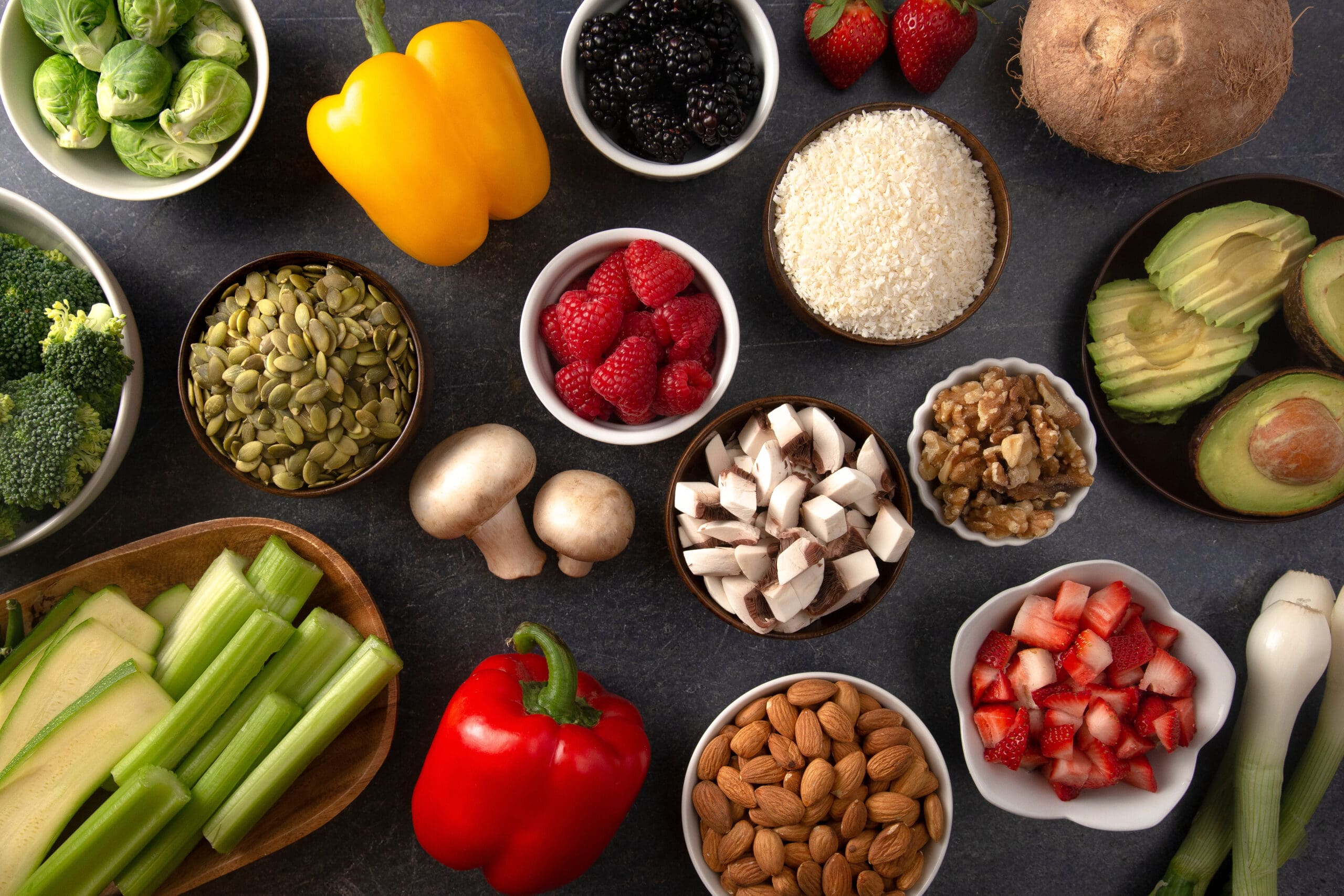Low Carbohydrate Fruits and Vegetables – make every gram of carbohydrate count!
By nutritionist Carol Vella
Many people today are aware of the metabolic benefits that following a low carbohydrate eating plan can offer. This way of eating results in decreased levels of glucose and insulin levels which have far reaching benefits for the entire body. It also has an inflammation lowering effect and can help prevent chronic diseases. Fruits and vegetables often form a major part of low carbohydrate eating plans as people look to replace more refined and higher carbohydrate sources such as bread, pasta, rice, cereals and processed foods with nutrient dense fruits and vegetables.
Fruits and vegetables offer a wide variety of nutrition such as fibre, potassium, vitamins, and minerals, as well as antioxidants and phytochemicals which help prevent oxidative damage and reduces the risk of chronic disease. Fruit also contains soluble fibre which helps reduce the amount of sugars absorbed from the fruit.
Not many people are aware of the amounts of carbohydrates that are contained in fruits and vegetables. They are not all equal. There are some that are higher in carbohydrate and need to be avoided such as bananas, pineapple, grapes, mangos and figs.
Low carbohydrate vegetables which may be included in unlimited quantities include lettuce (all types), kale, swiss chard, spinach, cucumber, mushrooms, zucchini, and capsicums.
The following fruits are examples of better choices of the lower carbohydrate varieties:
| Fruit | Carbohydrate content |
|---|---|
| Raspberries (1/2 cup) | 3 grams |
| Blackberries (1/2 cup) | 4 grams |
| Strawberries (100g) | 6 grams |
| Plums (1 medium) | 7 grams |
| Kiwi Fruit (1 medium) | 8 grams |
| Cherries (1/2 cup) | 8 grams |
| Blueberries (1/2 cup) | 9 grams |
| Rockmelon (1 cup) | 11 grams |
The following vegetables are best avoided or minimised when following a low carbohydrate diet due to their high carbohydrate content:
| Vegetable | Carbohydrate content |
|---|---|
| Sweet potato (1 cup) | 27 grams |
| Potato (1 cup) | 27 grams |
| Parsnip (1 cup) | 24 grams |
| Carrot (1 cup) | 12 grams |
| Pumpkin (1 cup) | 8 grams |
The following three items are commonly thought of as vegetables but are legumes (green peas and black-eyed peas) as well as a grain (corn). These items should also be minimised or avoided for those wishing to follow a low carbohydrate diet.
| Legume | Carbohydrate content |
|---|---|
| Black eyed peas (1 cup) | 33 grams |
| Corn (1 cup) | 27 grams |
| Green peas (1 cup) | 21 grams |
The lower carbohydrate versions of fruits and vegetables mentioned above will ensure an adequate nutrient intake while committing to this healthy way of eating. Your body will reap the rewards!
Dr Cabot’s book ‘I Can’t Lose Weight and I Don’t Know Why‘ is filled with low carb recipes, a carbohydrate reference table and a 12 week metabolic weight loss plan to help you reverse insulin resistance and improve overall health.









Leave A Comment